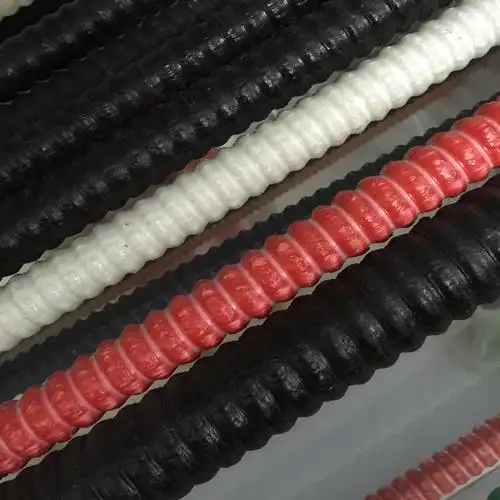Introduction
When it comes to construction, selecting the right materials can make all the difference in terms of both safety and longevity. One of the most essential components in building is rebar, or reinforcing bar, which provides strength and stability to concrete structures. Traditionally, steel rebar has been the go-to material for this purpose. However, fiberglass rebar has been gaining popularity as an alternative due to its remarkable benefits. In this article, we’ll explore the top advantages of buying fiberglass rebar over traditional steel rebar and why it might be the best choice for your next project.

buy fiberglass rebar
What is Fiberglass Rebar?
Fiberglass rebar is a composite material made of a high-strength fiberglass core that is wrapped with a resin coating, making it non-metallic. Unlike traditional steel rebar, fiberglass rebar is resistant to corrosion and offers several performance advantages. It is lightweight, strong, and highly durable, making it suitable for use in a variety of harsh environments where steel rebar might fail or require more frequent maintenance. The primary difference between fiberglass and steel rebar lies in its ability to withstand corrosion, making it ideal for structures exposed to moisture, chemicals, or high salt environments, such as bridges, parking garages, and marine structures.
Top Benefits of Fiberglass Rebar
Durability and Corrosion Resistance
One of the most significant advantages of fiberglass rebar is its corrosion resistance. Steel rebar is prone to rust when exposed to moisture, salt, or certain chemicals, leading to long-term structural damage. Fiberglass rebar, on the other hand, is impervious to corrosion, making it an excellent choice for structures in coastal areas or regions with high humidity. Over time, this resistance to corrosion translates into lower maintenance costs and longer-lasting structures.
Lightweight and Easy to Handle
Fiberglass rebar is incredibly lightweight—up to 75% lighter than its steel counterpart. This makes it much easier to handle and transport. For construction teams, this means reduced labor costs as handling and installation are quicker and less physically demanding. Additionally, the reduced weight can lower transportation expenses, especially for large-scale projects.
Improved Performance in Harsh Environments
Fiberglass rebar is built to withstand extreme environments. It doesn’t rust in salty air, is resistant to chemical exposure, and performs exceptionally well in both high and low temperatures. This makes fiberglass rebar perfect for structures that need to stand up to the elements, such as marine constructions, tunnels, and bridges. In situations where steel would quickly degrade, fiberglass rebar provides long-term, reliable performance.
Long-Term Cost Savings
While the upfront cost of fiberglass rebar may be higher than steel, the long-term savings are substantial. The lack of corrosion means fewer repairs and replacements are needed, which can save significant amounts of money over the life of a structure. This makes fiberglass rebar a cost-effective option for projects that demand durability and low maintenance over time.
How to Choose the Right Fiberglass Rebar for Your Project
Consider the Load-Bearing Capacity
Different types of fiberglass rebar come with different load-bearing capacities. When choosing fiberglass rebar, it’s important to consider the specific structural requirements of your project. For instance, bridges may need a higher grade of rebar than parking garages. Be sure to check the specifications and match the type of rebar with the demands of your construction.
Check for Certifications and Quality Standards
To ensure you’re getting the highest-quality fiberglass rebar, look for products that meet industry standards such as ASTM D7957. Certified fiberglass rebar is rigorously tested to ensure it meets safety and performance criteria. Opting for reputable manufacturers and suppliers guarantees that your rebar will perform as expected.
Potential Drawbacks of Fiberglass Rebar
Higher Initial Costs
Fiberglass rebar can have a higher upfront cost compared to traditional steel. This can be a concern for some projects with tight budgets. However, as mentioned earlier, the long-term savings on maintenance, repairs, and replacements can more than make up for this initial investment.
Limited Availability in Some Areas
Fiberglass rebar is still a relatively new product in the construction industry, which means it may not be as readily available in all regions. However, with the growing popularity of composite materials, it’s becoming easier to find trusted suppliers even in more remote locations.
Conclusion
Fiberglass rebar presents a game-changing alternative to traditional steel rebar, offering a host of benefits such as corrosion resistance, lightweight construction, and long-term cost savings. While it may come with a higher initial price tag, the investment pays off in durability and reduced maintenance. If you’re planning a construction project that requires robust and reliable reinforcement, consider fiberglass rebar for a sustainable and high-performance solution.
Ready to make the switch? Explore leading fiberglass rebar suppliers and start your next project with confidence!




























